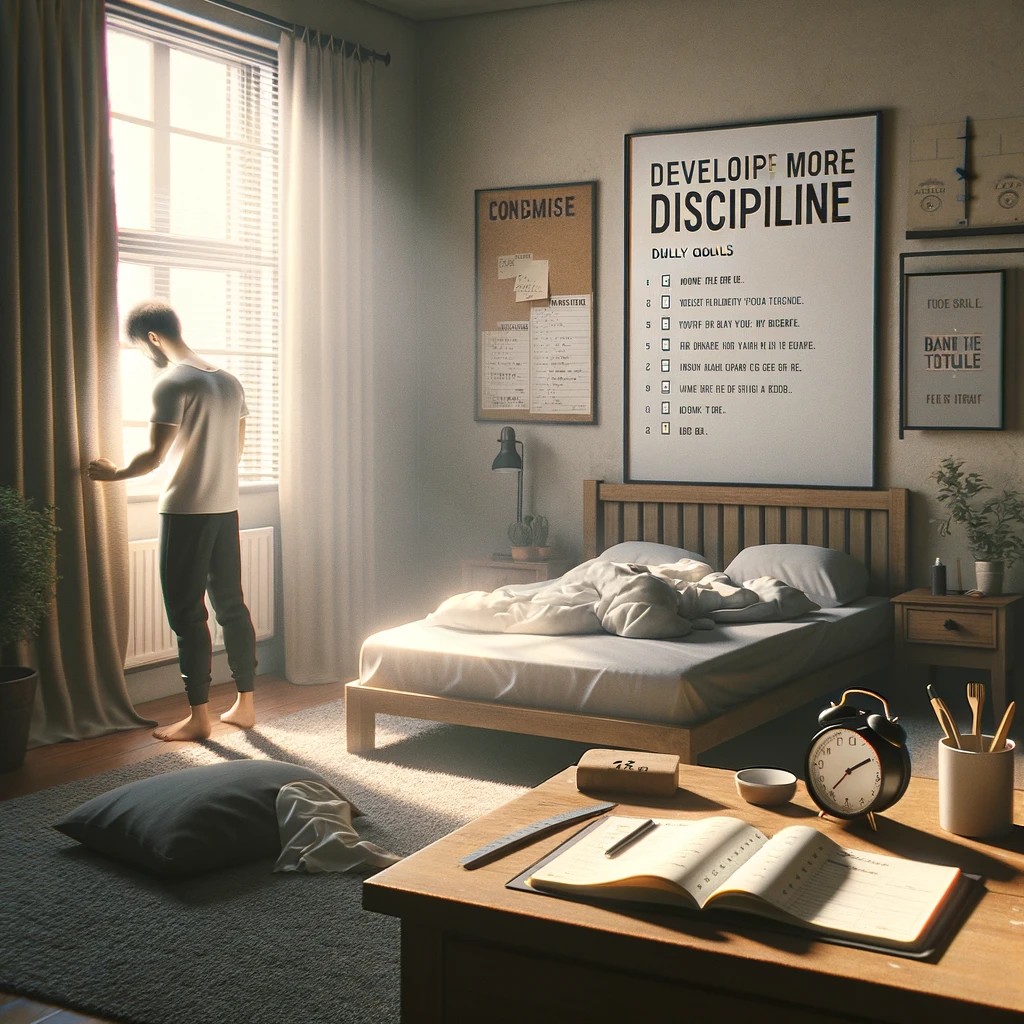Staying disciplined and keeping a balanced routine isn’t about perfection—it’s about commitment, consistency, and self-respect. When life gets busy or motivation fades, discipline is what keeps you moving forward without burning out.
In this guide, you’ll learn how to develop real discipline while also keeping your routine healthy, flexible, and enjoyable.
1. Understand What Discipline Really Is
Discipline is not punishment or self-denial. It’s the ability to stay committed to your goals even when it’s hard.
Discipline means:
- Showing up even when you don’t feel like it
- Sticking to your habits when motivation fades
- Choosing long-term benefits over short-term pleasures
Think of it as a skill—not a personality trait—that anyone can strengthen with practice.
2. Start with Clear and Meaningful Goals
If your goals aren’t clear or personally meaningful, it’s harder to stay disciplined.
Ask yourself:
- What do I want to feel or experience by creating this routine?
- What’s the deeper reason behind my goals?
- How will this benefit my well-being?
When your routine is tied to values—not just tasks—it becomes easier to stay committed.
3. Break Big Goals Into Small, Manageable Steps
One of the biggest discipline-killers is overwhelm. Instead of trying to overhaul your life in one week, break your routine into small, daily habits.
For example:
- Want to exercise daily? Start with 10 minutes.
- Want to sleep better? Begin by turning off screens 30 minutes before bed.
- Want to eat healthier? Start by prepping one balanced meal a day.
Small wins create momentum—and that momentum builds discipline.
4. Create Cues and Triggers for Habits
Discipline thrives on consistency and predictability. Use environmental or time-based cues to remind yourself to act:
- Stretch after brushing your teeth
- Meditate right after making your morning coffee
- Journal right before going to bed
These cues turn habits into automatic behaviors, making discipline easier to maintain.
5. Balance Discipline with Flexibility
Being disciplined doesn’t mean being rigid. Life will happen. Plans will change. And that’s okay.
Instead of aiming for perfection, aim for consistency with compassion.
For example:
- If you miss a workout, go for a walk later.
- If your schedule is packed, shorten your routine but don’t skip it.
- If you slip, get back on track the next day—no guilt.
Flexibility prevents burnout and makes your discipline sustainable.
6. Design a Supportive Environment
Your environment has a huge impact on your discipline. Make it easy to stick to your routine by:
✔️ Removing temptations (e.g., junk food, distractions)
✔️ Keeping your space clean and organized
✔️ Using tools like planners, apps, or habit trackers
✔️ Surrounding yourself with people who support your growth
You don’t need willpower when your environment is working with you—not against you.
7. Use Accountability—But Make It Positive
Accountability helps you stay on track, especially when you’re building new routines. Find ways to keep yourself responsible without being harsh:
- Share your goals with a friend
- Use a daily checklist or progress tracker
- Reflect weekly on what’s working and what needs adjustment
Celebrate progress, not just perfection.
8. Protect Your Energy and Set Boundaries
Discipline isn’t just about doing more—it’s about managing your energy and saying no to what drains you. That means:
- Getting enough sleep
- Saying no to unnecessary obligations
- Scheduling downtime
- Unplugging from tech and social media when needed
Discipline is about prioritizing what matters—and that includes rest.
9. Be Patient and Kind with Yourself
Building discipline takes time. You’ll have off days, setbacks, and moments of doubt. That’s normal.
What matters most is your ability to:
- Keep going when it gets tough
- Learn from mistakes
- Be kind to yourself through the process
Progress isn’t always visible day to day—but over time, your efforts compound.
Discipline = Freedom
Contrary to what many think, discipline doesn’t restrict you—it frees you. It gives you the clarity, structure, and strength to live life on your terms.
When you combine discipline with balance and self-compassion, you create a routine that supports your health, goals, and joy—not one that controls you.
Start small. Stay consistent. Adjust as you grow. You’ve got this.
